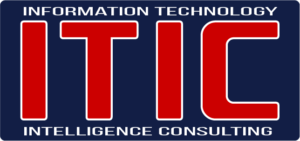ITIC’s Windows 8 Survey Data shows that companies and the industry at large is taking a “wait and see” attitude towards the Windows 8 Surface Tablet which Microsoft formally unveils this week.
Reviews so far have been mixed but there’s no doubt that this is Microsoft’s attempt to beat Apple at its own game in the tablet market AND one-up the iPad maker by delivering a tablet-like device that also has the power of a full-blown computer.
Hence, the mood is more cautious with respect to the Windows 8 RT Surface Tablet. This is Microsoft’s first foray into the tablet arena which is dominated by Apple’s iPad with 68% marketshare. Just over one third – 34% — of the over 500 ITIC survey respondents said their Windows 7 desktops were fine; another 24% indicated they’re already using the Apple iPad and are satisfied with its performance; 18% said other device purchases take priority and 16% said they were waiting to see how the Windows 8 Surface Tablet is priced. Ironically, only nine percent of survey participants said the Touch screen factored into their decision not to purchase the Windows 8 Surface Tablet. Interestingly, only 12% of survey participants said they would pass on the Windows 8 Surface Tablet because they’re already using an Android-based tablet.
Overall, 62% or nearly two-thirds of the respondents who have tested the Windows 8 Surface Tablet gave it a positive rating compared to 38% that found it ” poor” or “unsatisfactory.” Among the latter group — an overwhelming 87% of the 38% that disliked performance attributed it to ergonomics, e.g, they were dissatisfied with the built-in keyboard which is very sentisive and made them more prone to typing errors. Some also though it should have been a “bit lighter.”
Analysis
Windows 8 appears to be a solid successor to Windows 7 in terms of performance, reliability, scalability, security. Additionally, Microsoft has pledged not to repeat the egregious mistake it made with Vista, which sorely lacked backwards compatibility and interoperability with many crucial third party applications. Nonetheless, even some Microsoft insiders privately acknowledge that the company would have been better served by holding off on shipping the Windows 8 desktop since a significant portion of businesses have just recently migrated to Windows 7. Microsoft has largely been mum on the issue of what users perceive as unnecessarily forcing them to use the Touch screen. Touch screens have long been a staple among Apple Macintosh users. But the Metro is and will be a jarring change for many corporate end users – particularly older ones. Microsoft badly miscalculated this issue.
The Windows 8 RT Surface Tablet is another story. In the tablet and smart phone arenas, corporations and consumers expect to use and in fact embrace the Touch Screen interface. But in the tablet arena, Microsoft faces two significant challenges to adoption: their names are iPad and Android. Microsoft is late to the tablet market where the Apple iPad has a commanding 68% market share.
Microsoft must craft a cogent, compelling marketing campaign and back it up with strong features, excellent technical service and support and an aggressive pricing model if it is to have any chance of being a serious player in the tablet market.
Conclusions
IIt is highly unlikely that Windows 8 will see widespread mainstream corporate adoption within the first year. Too many people and businesses have recently or are just beginning a Windows 7 migration. So Microsoft should use this time wisely and re-engineer Windows 8 within the first Service Pack to enable corporations and consumers to easily revert to the traditional Start button and bypass the Touch screen. This will mitigate much of the negativity and help to assuage the corporate concerns regarding the new OS. Microsoft should also ensure that its Windows 8 documentation and technical service and support are top notch and feature backwards compatibility with its own products as well as the major third party ISVs. Microsoft can’t afford another debacle like Vista.
Microsoft also needs to aggressively market the Windows 8 RT Surface Tablet and create a buzz that includes tangible reasons why . It is also imperative that Microsoft undercut Apple and Android-based rivals on pricing and deliver top notch service and support in order to gain a foothold in this intensely competitive market.
The bottom line: Microsoft has a lot to prove in the court of public opinion.
